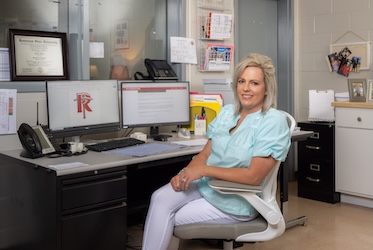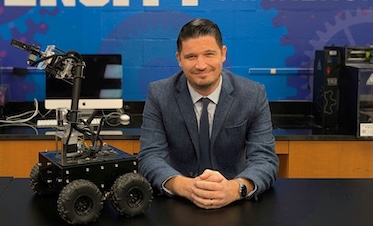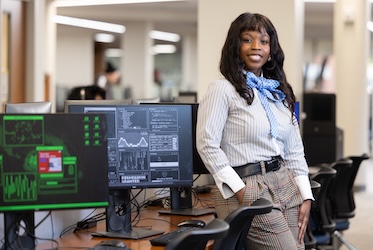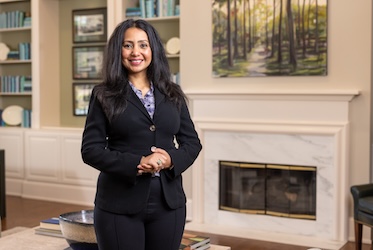
Kennesaw State graduate leverages research in data analysis to earn postdoctoral fellowship
KENNESAW, Ga. | Jul 28, 2021

Before arriving in the U.S., Mohammad Masum had no real concept of data science.
A native of Bangladesh, he came stateside to expand his knowledge but didn’t quite discover his passion for data science until he neared the end of a graduate program in mathematics and statistics. That passion is what ultimately led him to Kennesaw State University, where he will graduate this month with a Ph.D. in Analytics and Data Science before starting a postdoctoral fellowship at Emory University Hospital.
“The interdisciplinary nature of this program has been incredibly helpful in broadening my horizons,” Masum said. “Not only did I have courses in statistics, mathematics and computer science, I benefited from talking to a diverse group of students who come from different professional backgrounds and have unique perspectives. In the end, I have become a more well-rounded researcher who can approach problems from a unique angle.”
While studying in Kennesaw State’s School of Data Science and Analytics, Masum’s research interests have centered primarily on data applications in the health care industry. Under the guidance of KSU faculty, including his Ph.D. advisor Hossain Shahriar, he has authored and co-authored more than a dozen papers since arriving on campus, many of which were accepted to highly competitive international conferences.
Masum was particularly active throughout the COVID-19 pandemic, applying his newly acquired skills to develop a machine learning model that used coronavirus infection data to project future cases in the population. In a separate project, he helped build a search query algorithm that allowed health care professionals to quickly search through thousands of research publications in order to extract the most pertinent bits of information related to COVID-19 best practices.
Beyond the pandemic, his primary interest was in finding a method to predict the risk of seizures among patients. Masum’s dissertation centered around the use of machine learning and equipment capable of measuring brain waves.
“This bit of research has implications for those who suffer from seizures, as we potentially have a way to process information from the machines and can more accurately predict if that patient is at risk for seizures down the road,” he said.
At Emory University Hospital, Masum will leverage his research to study how machine learning applications can fit into the processing of clinical records. Later, he hopes to explore how similar approaches can help detect early signs of breast cancer from images.
“The fact that Mohammad has found himself an opportunity at a renowned research environment speaks volumes of his ability as a researcher,” said Shahriar, associate professor of information technology in the College of Computing and Software Engineering. “We are happy to see him move on to his next endeavor and know that he has a bright future ahead of him.”
– Travis Highfield
Photos by David Caselli
Related Stories

Kennesaw State student, assistant principal sharpens educational leadership skills through doctoral program

Master's in robotics systems fulfills Kennesaw State online student's goal

Kennesaw State information technology student, Fulbright semifinalist chasing interest in cybersecurity

Kennesaw State's Healthcare Management and Informatics program celebrates 10 years preparing workforce leaders
A leader in innovative teaching and learning, Kennesaw State University offers undergraduate, graduate, and doctoral degrees to its more than 47,000 students. Kennesaw State is a member of the University System of Georgia with 11 academic colleges. The university’s vibrant campus culture, diverse population, strong global ties, and entrepreneurial spirit draw students from throughout the country and the world. Kennesaw State is a Carnegie-designated doctoral research institution (R2), placing it among an elite group of only 8 percent of U.S. colleges and universities with an R1 or R2 status. For more information, visit kennesaw.edu.

















